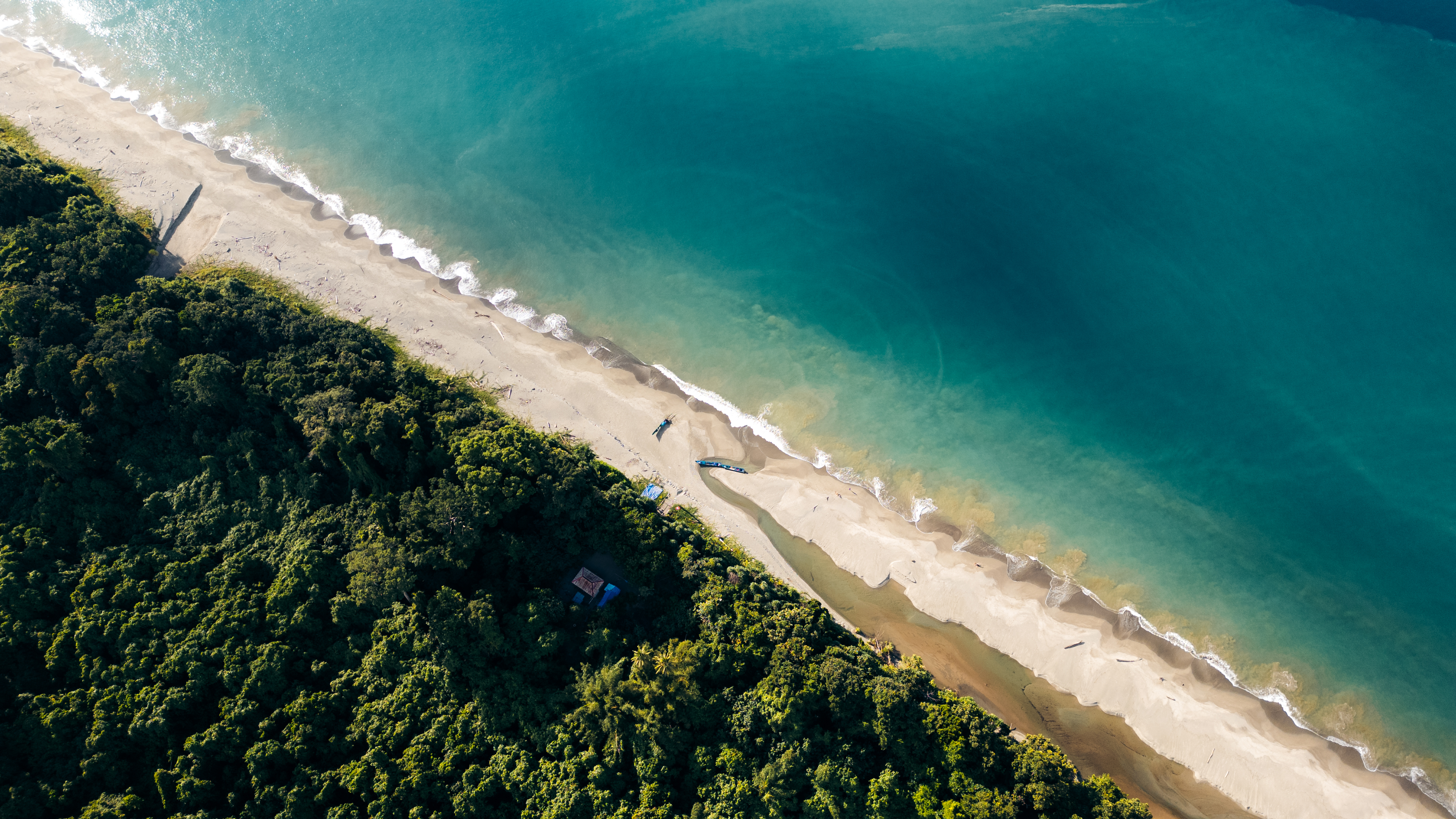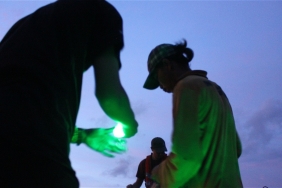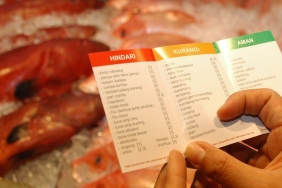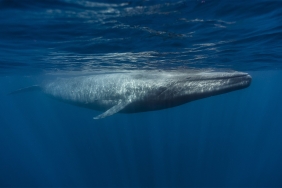LEARNING THE LOCAL WISDOM OF MARINE PROTECTION FROM AIMOLI VILLAGE
By: Tardi Sarwan (Responsible Marine Business Coordinator for Lesser Sunda) and Zakarias Atapada (Social Development Specialist)
Kabola Village currently has an important ecosystem for the habitat of Dugong (Dugong dugon) or better known as Duyung and in the local language called Sea buffalo. This can be seen from the formation of a conservation group at the initiation of the surrounding community to protect the ecosystem and habitat of dugongs. This conservation group is fully supported by the Government of Kabola Village, Kabola District, where one of the activities that has been carried out is joint learning activities with Aimoli Village, Northwest Alor District.
Aimoli Village, located about 45 km from the east of Kalabahi City, has its own views regarding the protection of marine and coastal ecosystems. Until the issuance of a joint decision letter agreed upon and signed by the Village government, Village Consultative Body (BPD), Aimoli Village residents and institutions in Aimoli Village. The agreement that has been signed is related to the regulations:
1. For people who cut down and take skin on mangrove stems or mangroves are subject to fines in the form of money with the amount:
- Aimoli village community fine of Rp. 500,000,-
- community outside Aimoli village a fine of IDR 1,000,000
2. For people who damage by digging sea worms and meting on the roots of Mangrove or mangroves are subject to a monetary fine of Rp. 500,000,-
3. For people who destroy marine biota by using poison tuba and the like, a monetary fine shall be imposed, among others:
a. Aimoli Village community fine of Rp. 500,000,-
b. People outside Aimoli Village, a fine of Rp. 1,500,000,-
This agreement has been socialized to Aimoli Village residents as resource users and users and other villages around Aimoli Village. This regulation has also been sent to the Northwest Alor Police Sector, the Northwest Alor Sub-District Head and the heads of neighboring villages of Aimoli Village as copies.
Currently, the village government has drafted a regulation regarding this matter and has registered it with the Legal Bureau of the Alor Regency Government to become a Perdes. The condition of Aimoli Village after the implementation of the Joint Decree (SKB) has begun to benefit. For example, seaweed grows well, fish are easily available around mangroves, and the coast is protected from waves during bad weather. These conditions have made several other villages want to learn from Aimoli Village to protect their environment.
One of the villages interested in learning about policies in Aimoli Village came from Kabola Village. Ibu Yanti, Head of Kabola Village, together with the Cinta Persahabatan Group and the Jikengwar Group took the time to visit Aimoli Village to learn the procedures for drafting regulations and determining sanctions for violators by absorbing the aspirations of the Aimoli Village community in utilizing natural resources wisely.
The activity continued with mangrove planting together and discussions related to the benefits of sustainable seaweed cultivation that has been carried out by applying WWF-Indonesia's Better Management Practices (BMP). Assistance in improving seaweed cultivation carried out in accordance with these BMPs brings many benefits to the community in maintaining coral reef, seagrass and mangrove ecosystems. In addition, the existence of local wisdom in Aimoli Village, namely the prohibition of mangrove cutting and sand excavation, has proven to be able to protect Aimoli Village from the effects of abrasion, waves and wind.
It should be appreciated that the efforts made by the people of Alor Regency can support the effective management of the Pantar Strait Waters Nature Reserve and the surrounding sea. In addition, the Kabola Village hopes that the rules in Aimoli Village can be learned and replicated in the community and government to develop regulations for the protection of ecosystems and also dugong habitats for the benefit of the community in utilizing fisheries resources in Alor Regency. WWF-Indonesia through its role in strengthening groups in terms of institutions and capacity will continue to support conservation efforts in Alor Regency.





